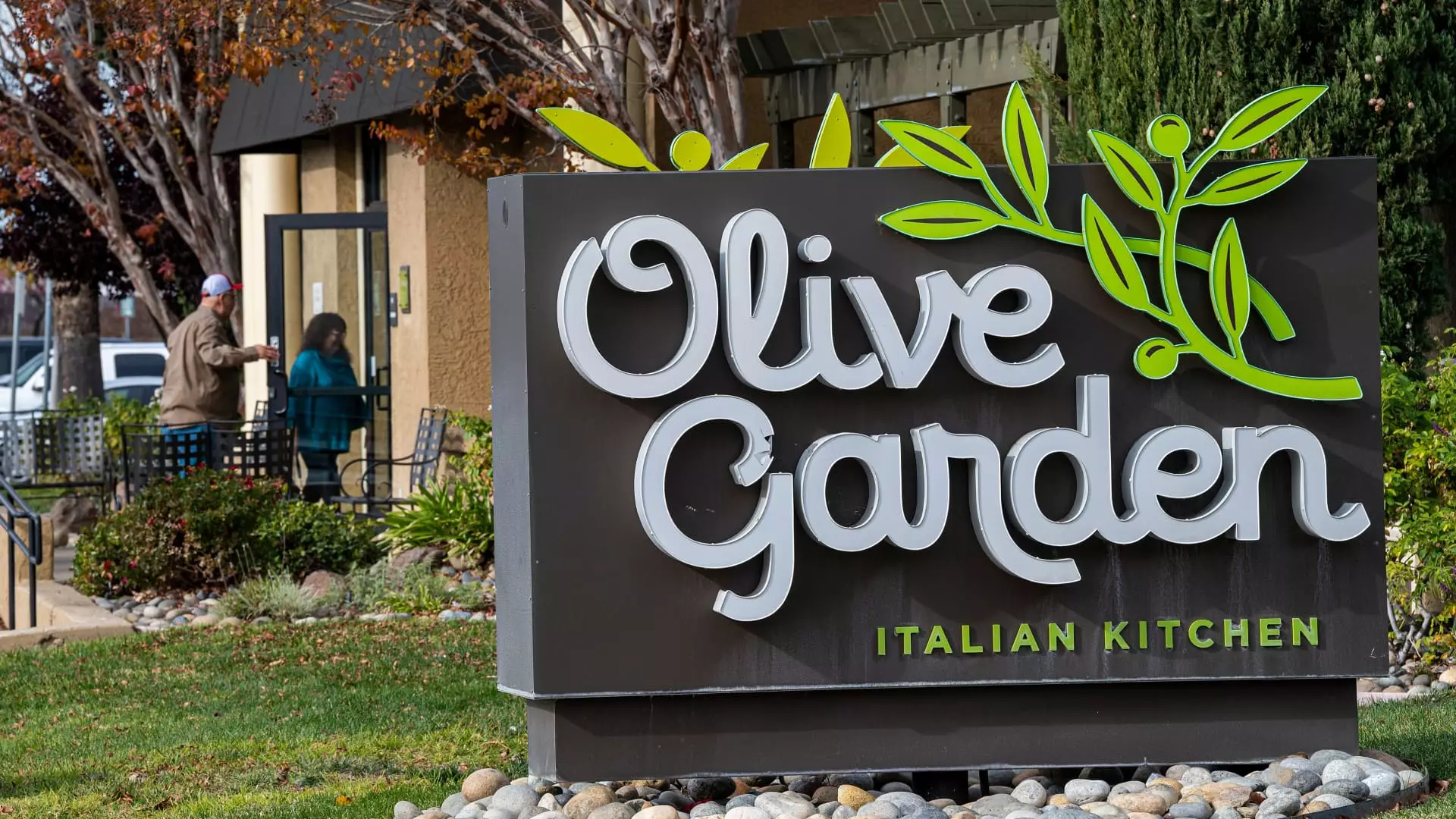In a time when many companies grapple with fluctuating consumer spending patterns, Darden Restaurants has emerged, almost defiantly, as a beacon of resilience. On a recent Friday, the parent company of popular dining brands, including Olive Garden, reported earnings that surpassed Wall Street’s rather cautious expectations. The figures speak volumes: an adjusted earnings per share (EPS) of $2.98, slightly above the anticipated $2.97, and a revenue of $3.27 billion, comfortably exceeding the forecasted $3.26 billion. The numbers are not merely footnotes in a financial report; they encapsulate a narrative of a company navigating stormy economic waters with competence and audacity.
Positive Trends Amidst Caution
Darden’s ambitious forecast for fiscal year 2026 adds an exhilarating twist to its story. With an anticipated revenue growth of 7% to 8%, supported by an extra operational week in the fiscal calendar, the company is not merely riding the wave of recent successes but is actively steering towards new horizons. This ambition underscores a critical sentiment: despite existing challenges in the broader market, there remains a subsect of the consumer demographic that continues to indulge in dining out. Rick Cardenas, Darden’s CEO, encapsulated this phenomenon during a recent earnings call, asserting that dining out has become an essential escape for many. His insistence on the viability and effectiveness of the company’s strategic plan is not just corporate rhetoric; it reflects a deeper understanding of consumer psychology in challenging economic climates.
The Duality of Growth: Olive Garden and LongHorn
Delving deeper into the performance metrics reveals that Olive Garden and LongHorn Steakhouse—the standout brands of Darden—have played pivotal roles in driving growth. Olive Garden, contributing to about 40% of Darden’s quarterly revenue, delivered a staggering 6.9% rise in same-store sales, besting analysts’ projections of 4.6%. LongHorn Steakhouse followed closely behind, with impressive growth of 6.7%, again shattering expectations of 5.3%. Such performance metrics illustrate not just resilience but a robust brand promise that resonates with consumers at a time when discretionary spending is under scrutiny.
However, the fine dining segment, showcasing brands like Ruth’s Chris and The Capital Grille, registered a concerning decline of 3.3% in same-store sales—much worse than the expected minimal decrease. This disparity highlights the selective nature of consumer expenditures—while some brands bask in the glory of consumer indulgence, others are left grappling with the consequences of a shifting market landscape. Perhaps it is the rising costs and changing consumer preferences that are pushing upscale dining to the fringes, a reflection of a broader trend, where value becomes the currency of choice.
Innovative Approaches and Market Adaptations
Darden’s recognition of these market dynamics is evident through innovative strategies, such as its partnership with Uber Direct for on-demand delivery via Cheddar’s Scratch Kitchen. This alignment with modern consumer behavior indicates an astute grasp of evolving trends and the need to adapt swiftly. By piloting such delivery initiatives, Darden is broadening its approach, intentionally positioning itself as a versatile player in the dining space rather than a traditional restaurant chain.
Moreover, the company’s bold decision to implement a $1 billion share repurchase program, which replaces the previous authorization, portrays a strong belief in its own stock value—a telltale sign of confidence in its financial fortitude and future profitability.
Stock Market Response and Future Outlook
Shareholder sentiment is reflected in the stock’s performance, boasting an approximately 19% increase year-to-date. That number isn’t just a statistic; it reflects investor trust in Darden’s core strategies and operational resilience. While economic conditions may lead others to falter, Darden seems uniquely positioned to thrive, defying traditional expectations and corporate norms.
The strength of Darden Restaurants amidst potential economic downturns sets a narrative of optimism in an otherwise troubling market landscape. As consumer behavior continues to evolve, Darden’s ability to adapt will be pivotal. It demonstrates that even in periods of uncertainty, strategic foresight, paired with a commitment to delivering satisfying dining experiences, can yield fruitful outcomes. As we look toward the future, Darden isn’t merely riding the waves of current successes; it is actively crafting its own path, one that combines resilience, adaptability, and a consumer-first mindset.

